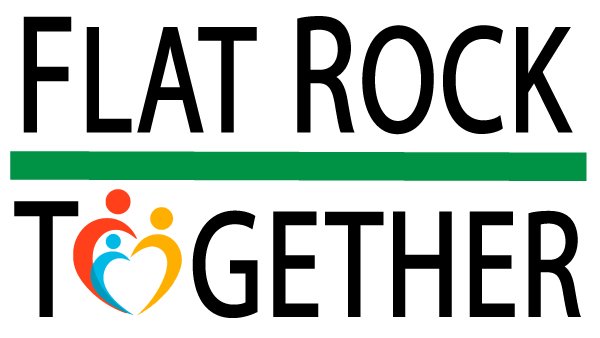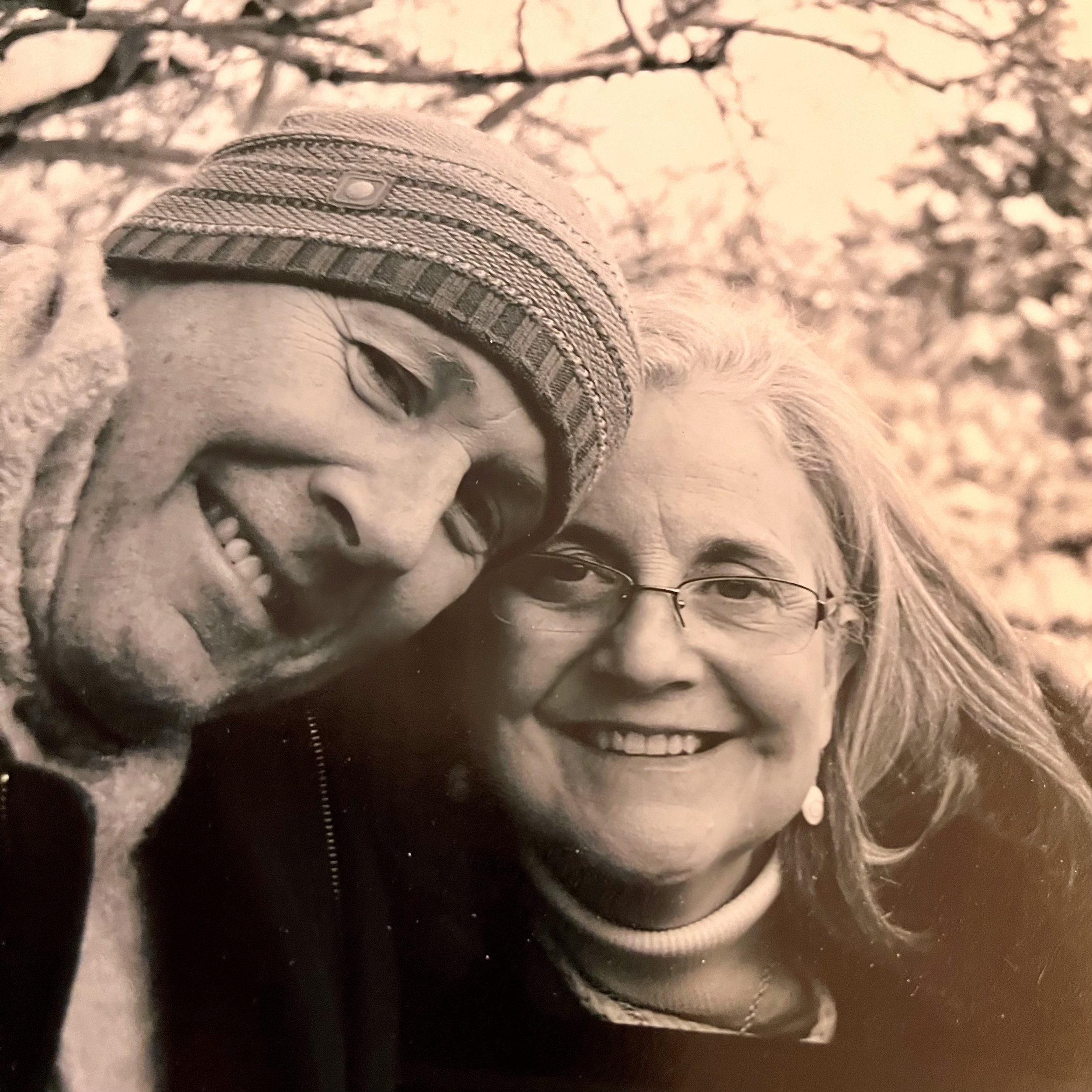Learning to Dance with Dementia
/Flat Rock resident, Laura Meherg Teel, spent years as the primary caregiver for two aging parents dealing with dementia. Although those years were frequently challenging, confusing, and at times heartbreaking, Laura was able to navigate her parents’ journey with the help of a groundbreaking organization out of Asheville called MemoryCare. With the professional and compassionate assistance of MemoryCare, Laura and her parents had the best possible life during their collective struggles with dementia.
Ultimately, Laura lost her father in 2019 and then her mother in 2020. Although her responsibilities as a caregiver were finished, Laura’s overwhelmingly positive experience with MemoryCare made it impossible for her to simply walk away from the organization. She joined MemoryCare’s Board of Directors in 2021 and now serves as the board president.
In her role with the board, Laura has helped organize an upcoming workshop called “Dancing with Dementia” that will be offered in Flat Rock on Thursday, March 13th at St. John in the Wilderness Episcopal Church. The seminar will be led by Mary Donnelly, a nationally recognized dementia consultant and educator affiliated with MemoryCare, and will offer an informative and practical discussion to assist caregivers for friends or family suffering from dementia.
Laura Meherg Teel
Laura, not surprisingly, is an enthusiastic advocate for Donnelly’s workshop. “Mary was one of the first educators that I met through MemoryCare. The guidance I received from the staff and educators at MemoryCare was my lifeline for a very long time.”
MemoryCare
MemoryCare, located in Asheville, NC, consists of a team of physicians, nurses, social workers, and volunteers dedicated to helping individuals with Alzheimer’s Disease and other cognitive disorders live as fully as possible for as long as possible at home or in their preferred setting. They are the only organization of its kind in western North Carolina and one of the few in the nation that focuses on equipping caregivers with the resources they need as well as providing excellent care to their loved ones.
Dr. Margaret A. (Peggy) Noel
MemoryCare was founded in 2000 by Dr. Margaret (Peggy) Noel in Asheville. A graduate of Davidson College and UNC-Chapel Hill Medical School, Noel started her career in Geriatric Fellowship training at Wake Forest University. She eventually arrived in Asheville to start a new program called the Center for Older Adults at Thoms Rehabilitation Hospital. After 10 years with Thoms, Noel continued her passion for helping both her patients and their caregivers by establishing a new nonprofit called MemoryCare.
She credits her patients and their families with providing the inspiration to create a new model for the treatment of dementia. “The people I cared for taught me a lot about refining the model,” Noel explains. “Most of the people I was caring for had cognitive disorders on top of everything else. Trying to figure out how they and their families could best navigate a future with declining cognition became a very strong focus of my work.”
Noel left Thoms and started MemoryCare with little more than her passion and an unwavering commitment to care for her patients – and their families. “Everyone said it was a terrible business plan,” Noel recalls. “Multiple grant funders and local entities said, this can't work. So, I accepted that, but I also felt like I needed to try.”
Noel’s belief in the model she was building was rewarded with the enthusiastic support of the families who benefited from her expertise at Thoms. “The families that were in my practice uniformly said, ‘How can we help?’” At the same time, the retirement community of Givens Estates in Asheville, offered Noel and her fledgling nonprofit space to launch her new endeavor – a janitor’s closet and a kitchenette. They were admittedly modest accommodations but offered free of charge.
Noel’s early faith in her process has been richly rewarded. Today, 25 years later, MemoryCare has seven doctors and six care managers working out of their own facility built on the campus of Givens Estates. MemoryCare serves roughly 1500 patients and 3000 caregivers - with more patients and families on a growing waiting list.
Among the thousands of patients assisted in the intervening 25 years were Laura Teels’s parents, Jane and Bob Meherg.
—
Jane and Bob Meherg
The Mehergs
Laura Teel helped move her parents to Flat Rock in 2013 so she could be available to provide assistance to her aging parents. Bob, who had exhibited signs of dementia prior to the move, became a patient at MemoryCare in 2016. Laura credits Dr. Noel with helping identify a parallel cognitive decline in her mother. Jane Meherg was diagnosed with Vascular Dementia and quickly became a patient of MemoryCare as well. “Once we got her diagnosed, it made things a lot easier for me to recognize what I was dealing with and what additional help we needed,” says Laura.
The education Laura received from MemoryCare was both a revelation and relief during an extraordinarily difficult time. “I get paid to solve problems and I fix things, but there was no fixing this,” Laura explains. “Recognizing what I could do and what I couldn't do to change my parents’ behavior was key.”
MemoryCare’s model extends beyond the standard patient assessments, diagnosis, and treatment to include clinical support that informs, comforts, and guides families and their loved ones through what is often a long and uncertain journey. Laura appreciates this holistic approach to treating patients with dementia. “Doctors are taught to cure a disease - fix the problem or repair something. But they don't necessarily take into account how it impacts the everyday life of the individual and the people who are caring for them.”
During quarterly visits, the staff at MemoryCare provided Laura and her parents with many services beyond medical treatment. They were especially valuable in helping Laura sort through the maze of medications her parents were prescribed. They also made recommendations on assisted living facilities and provided simple tips on ways to deal with behavioral issues. “I would call on the verge of tears,” Laura recalls. “They were always there to help.”
Laura also credits Mary Donnelly, the instructor for the upcoming workshop at St. John, as being instrumental in helping her navigate her parent’s final years. “Mary had us doing communications exercises and practicing different ways of doing things and thinking through the challenges of dealing with dementia in my parents.”
Mary Donnelly
Mary Donnelly
Mary Donnelly’s mother was one of MemoryCare’s earliest patients. From 2003 until her mother’s death in 2012, Mary experienced first-hand the quality of care available through the non-profit. “Mom had been going to the doctor every year and he was pronouncing her fine,” Mary remembers. “Her body was A+, but she was more and more forgetful. Once we got to MemoryCare, they were able to do the testing and give us a diagnosis - vascular dementia.”
Mary had been working part-time as a personal trainer and caring for her mother when she attended a seminar by Teepa Snow who is recognized as one of the country’s foremost dementia educators. That was a pivotal moment for Mary. “I was blown away. She was explaining how changes in my mother’s brain were changing her behavior.”
Inspired, Mary began pursuing her own education on the topic. She had been leading a support group at MemoryCare since 2007 but wanted to take her training to the next level. As a first step, she attended the Validation Training Institute which trains caregivers. The Validation method motivates older adults with cognitive decline to communicate more, relieve stress, and enhance dignity and happiness in their final stage of life
When Teepa Snow opened her own company, Positive Approach to Care, Mary joined the organization in 2015 and now serves as a speaker and mentor for PAC as a professional consultant. She continues to coordinate the caregiver support programs for MemoryCare as an affiliate staff member and does speaking/training/consulting on dementia care in Western North Carolina.
It is in this latter role that will bring her to Flat Rock in March for the workshop at St. John in the Wilderness.
In addition to running a peer caregiver support group at MemoryCare, Mary writes and edits a bi-monthly e-newsletter, Caregiver Network News, and is part of the teaching staff of their Caregiver College. Mary also has a private business (understandingdementiacare.com.) Through that business, she is available for hire to co-facilitate other area support groups, provide family consulting and on-site staff dementia training for long-term care facilities, and is in demand to speak on dementia-related issues across the country.
The program at St. John is specifically targeted to caregivers. “This is literally talking about how to “dance” with your partner who's got dementia,” Mary explains. “It is for people who want to have a better connection with their partner whose changing brain is affecting their relationship. It deals with ways to try to hold that relationship together a little bit longer.”
Most importantly, Mary fully understands what caregivers are going through. “I did all the wrong things, but I did them all for the right reasons. I can understand the way caregivers and families think about this issue, because so did I.”
Lell and Peter Harboe
Peter and Lell Harboe
Among MemoryCare’s patients and families are Lell and Peter Harboe of Flat Rock. Peter is 72 and worked out of the Flat Rock Post Office as a Rural Route Carrier for many years. After a fall in 2019, he began experiencing issues with his short-term memory. The Harboes visited MemoryCare and learned that Peter was in fact suffering early symptoms of dementia.
Lell is emphatically grateful for the treatment and support from MemoryCare. “They have been tremendous as a resource for me as a caregiver who started on this journey with my precious husband,” she says.
Peter and Lell go to MemoryCare every four months for a checkup and evaluation. Their daughter Ellen frequently accompanies them as well. In addition to Peter’s evaluation, the staff talks to Lell privately so that she feels free to share information. “We discuss any challenges or things that I've seen with Peter that I'm concerned about - any memory-type situations that would lead us to believe that he's declining.”
Working with MemoryCare, Lell and Peter have developed strategies to stay active and enjoy their life together. Mary is especially grateful that they started the process with MemoryCare early enough to involve Peter in some decisions that will be required in the future. “Our doctor advised us to talk as a family about decisions while Peter could cognitively help. I know his wishes and when the time comes, we won't think twice about what we have to do.”
Debbie Cudd and her Mother Margaret
Debbie Cudd, who lives in East Flat Rock, took her mother, Margaret Walker, to MemoryCare when Margaret began to show signs of memory loss. In their case, it was Margaret who instigated the decision to check on her own mental acuity. “Mother would say, ‘My thinking is just not right. Something's going on,’” recalls Debbie.
Margaret Walker with her Daughter Debbie Cudd
Debbie acknowledges that the process of her mother’s care has not been easy, but that MemoryCare was essential to help navigate the process. “They did continuous memory testing, monitored her progress, guided me and my brother as the caregivers. They helped us navigate the entire process. We could never have done it without them; never.”
She especially appreciated a program called Caregiver’s College offered by MemoryCare. “My brother and I attended and were thrilled with how much information they had. They have all the answers, and they make you feel really good about your decisions.”
One of the most difficult decisions was the choice to move her mother to assisted living at Lake Point Landing. Margaret was very resistant to the idea. “She put her hands on my shoulders and cried and begged me ‘Please don't make me go,” recalls Debbie. “That's what made it so very hard.”
With MemoryCare’s assistance and education, however, Debbie and her mother were able to make the best decision for Margaret’s continuing care. “I called Dr. Noel. She came right to the phone, she talked me down and reassured me. It was the hardest thing I've ever had to do, but I knew it was the right thing because that's what they told us to do.”
Ultimately, Debbie credits MemoryCare with saving her mother’s life by helping them get the care she needed in a timely manner. “They got us to move her there while her thinking was still pretty well, so she could learn her way around and be able to navigate the facility and adjust to being somewhere different. They helped us know the right time to go. Their help was invaluable.”
Based on personal experience, Debbie encourages to reach out for help early. “If you need the help, don't run from it. It's okay to need that help, and MemoryCare will guide you in the right direction.”
--
For all the medical care and training MemoryCare affords its patients and caregivers, Laura Meherg Teel is most impressed with the heart of the organization. “They lead with compassion. That's the thing that sets them apart. A geriatric practice requires a special individual to do it. They're there because they have a passion, and they really care.”
For families like Lell and Peter Harboe, that passion helps provide both expertise and hope. “When Peter and I get up in the morning, we never know what the day is going bring,” says Lell. “But we can get up and do the best we can because we've had so much help from others who have gone through this journey.”
###
Those who wish to attend the Learning to Dance with Dementia workshop must RSVP by visiting http://bit.ly/dancewithdementia. For more information. please call the St. John in the Wilderness church office at 828-693-9783.
You can also learn more about MemoryCare at memorycare.org.











